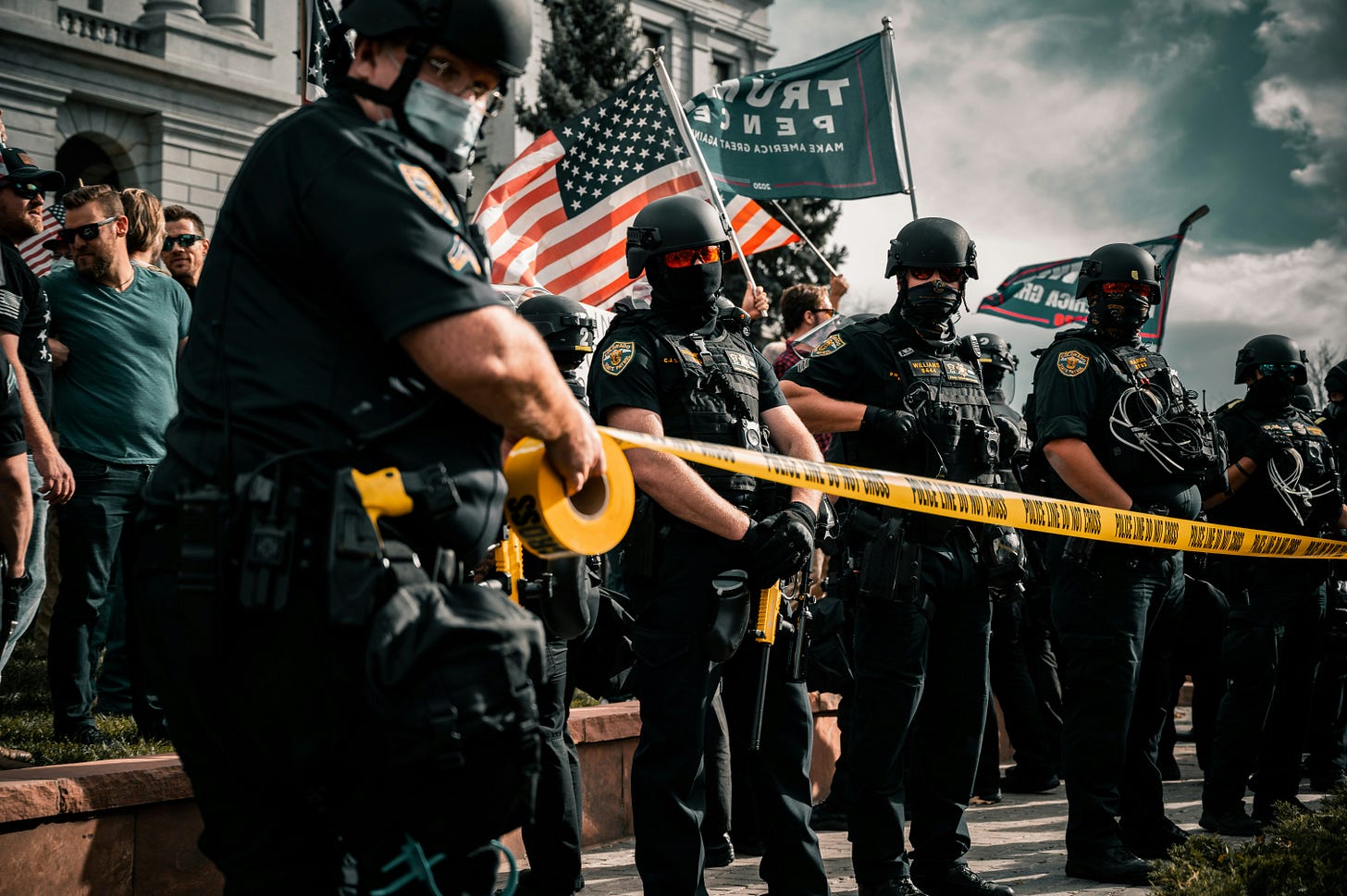Five Reasons Trump 2.0 Would Be Worse
There's a widespread misconception that a second Trump term would be just like the first. That's a catastrophic misreading of American politics—and the unprecedented risks if he wins.
Thank you for reading The Garden of Forking Paths. Much of this article is for paid subscribers only, so if you’re interested in unlocking all the essay—and getting full access to more than 120 others—please consider upgrading. It costs just $4/month and it makes my writing financially sustainable. My work is fully reader-supported.
I also recently wrote a piece in The Atlantic about Trump’s deranged commentary regarding sharks, boat batteries, and his suggestion that boats sink because they are heavy. You can read that piece here—Trump Rants About Sharks and Everyone Just Pretends It’s Normal. It’s a gift link, so there’s no paywall.
A few weeks ago, I was listening to a prominent pundit—he who shall not be named here—discuss the prospect of a second Trump term.
“What would it be like?” he was asked.
“Well,” he replied, “we know what it would be like, don’t we? We already saw the Trump show once. And with Trump, what you see is what you get. It’ll pretty much be a re-run of his first term.”
I was appalled. Sure, the pundit was parroting a widespread belief—that Trump 2.0 will just be four more years of Trump 1.0. But it’s completely wrong.
Holding that viewpoint requires an utter failure to understand how structural forces in the United States have shifted since Trump’s first term began in January 2017, paving the way for a much darker, much more authoritarian, much more dangerous second Trump term. Trump has changed. His party has changed. The US political system has changed. All for the worse.
These stakes need to be made clear as we head—this week—toward the first high-stakes presidential debate.
Specifically, there are five major shifts that will produce a darker second Trump term, a specter that continues to be a depressing but alarmingly realistic prospect for America and the world.
I: The MAGA Takeover of the Republicans is Complete
Throughout the 2016 campaign and into the early stages of Trump’s presidency, an important handful of Republicans tried to derail the Trump train.
Most did so out of cynical, self-serving ambition, as was the case with rival candidates Ted Cruz or Marco Rubio. For example, in 2016 Cruz suggested Trump had ties to the mob, accurately portrayed him as a “pathological liar” who “lies practically every word that comes out of his mouth,” and described Trump as a “snivelling coward.”
Others, such as the late Senator John McCain, actually put their money where their mouth was at pivotal moments. McCain, for example, cast a decisive vote against Trump’s disastrous health care plan.
McCain is dead. Other Republicans who spoke out against Trump—even if they often voted with him—such as Jeff Flake and Liz Cheney were forced out of the party or read the room and retired.
Those who remain have become MAGA zealots and apologists. Cruz now promotes Trump almost as much as he plugs his crappy podcast. And like so many Republicans, Cruz has become one of Trump’s political remoras—the human version of a marine creature that spends its life attaching itself to a larger, more powerful fish, feeding off its ectoparasites and loose flakes of skin for sustenance.
And don’t get me started on Lindsey Graham.
Furthermore, the rising stars of the Trumpified GOP are pure MAGA: among Matt Gaetz, Lauren Boebert, Marjorie Taylor-Greene, Byron Daniels, and so on, only Gaetz was elected in 2016. The others were first elected in 2020, part of the January 6th caucus. It’s easy to forget that these depressingly prominent crackpots and ideologues weren’t part of the first Trump term. Today, they are far more representative of the beating heart of the Trump base than, say, Mitch McConnell. What was once the party of Abraham Lincoln is now fully the party of Donald Trump.
Put bluntly, Trump faced some genuine restraints on his power during his first term, including from his own political party. None of those political constraints exist now, meaning he would be able to do significantly more damage.
II: They’re organized this time
In 2016, few Republicans believed Trump would win. That mattered when it came to government policy because the varied extremist policy groups that hoped to transform America in line with an authoritarian populist agenda were disorganized when he came to office. There was no coordinated machine, just a ragtag bunch of dangerous ideological clowns such as Seb Gorka (remember him?) and Steve Bannon. They were and remain provocateurs, unskilled in governance.
While Trump’s first term was highly consequential—the mammoth tax bill skewed toward the rich; a million people died in a badly bungled response to a pandemic; America’s international reputation was battered; the Supreme Court has been captured for a generation; and the norms and institutions of American democracy were catastrophically weakened—it did less damage than it might have if Trump had surrounded himself with seasoned veterans of the political process.
Instead, what emerges from the insider accounts of Trump’s White House are endless moments of disarray and dysfunction, a presidency swayed more by Trump’s narcissism and lizard brain impulses than by systematic, shrewd, strategic policymaking.
Sadly, this time would be different, for a few key reasons.
Keep reading with a 7-day free trial
Subscribe to The Garden of Forking Paths to keep reading this post and get 7 days of free access to the full post archives.




